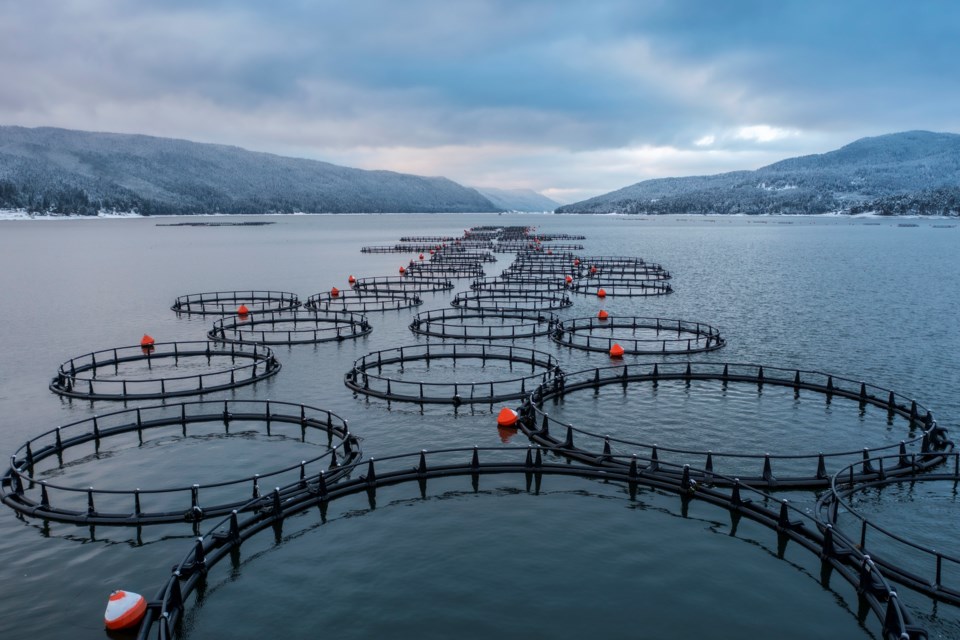Jim Horner has caught a lot of fish in his day. Call it the natural consequence of spending 30 summers on a commercial fishing trawler in the pristine waters of Haida Gwaii.
“Pretty much everything I have today I owe to salmon,” he said.
For decades now, Horner has tried to repay that debt by speaking out against what he calls “the cancer” of open-net Atlantic salmon farms located off the coast of B.C. and their harmful impacts on migrating wild salmon.
“I watched this incredible resource that was so abundant, and I saw it crash and burn,” he recalled. “It was pretty obvious to me what the problem was.”
So, to say that Horner was thrilled by the announcement, last month, that the federal government will not be renewing licenses for more than a dozen fish farms in the Discovery Islands, would be a vast understatement.
“I drank a bottle of scotch, to be honest with you,” he said with a laugh. “I’ve done what I can to try to support these great minds for the cause, and we’re getting to the point now where it looks like the tide has turned and we’re starting to gain some headway, finally, after 40 years, which puts a real smile on my face.”
Last month, Fisheries and Oceans Minister Joyce Murray reaffirmed her predecessor’s decision not to renew the licenses of 15 salmon farms in the Discovery Islands. The original decision to evict all open-net salmon farms by June 2022 was made in 2020 by former fisheries minister, Bernadette Jordan.
While salmon farmers have mostly complied with the order, they won a judicial review last year that challenged the original directive from 2020 after a federal court found Jordan’s order lacked procedural fairness. Murray was then tasked with reviewing the decision, and held a round of consultation with the salmon farming industry, First Nations and stakeholders.
“I thought it was spectacular,” Stan Proboszcz, senior scientist for the Watershed Watch Salmon Society, said of the decision. “I think it’s a lot of a different things, but I think this aquaculture industry is so problematic for so many reasons it has become a political liability for any sort of government to support. I think that’s the realization that’s happening now.”
The decision to phase out salmon farms in the Discovery Islands was based on a recommendation from the landmark Cohen Commission, established in 2010 to investigate the collapse of Fraser River sockeye returns, and vigorous opposition to the industry from First Nations.
The commission acknowledged open-net salmon farms could pose a risk to wild salmon through the transmission of diseases, particularly in the Discovery Islands, and recommended that all open-net farms be removed from the region by 2022, unless science could demonstrate they posed no more than a minimal risk.
Prior to Jordan’s original decision not to renew the federal licenses, Fisheries and Oceans Canada (DFO) released a widely criticized report that analyzed nine fish pathogens, concluding that open-net salmon farms posed no more than a minimal risk to wild salmon.
More recently, the DFO released a report that found “no statistically significant association” between infested salmon farms and sea lice in nearby wild salmon, prompting 16 of Canada’s leading fish scientists to sign a letter calling out the study’s “serious scientific failings,” including cherry-picked data that ignored the scientific consensus and a lack of consultation with experts outside of the DFO.
Proboszcz, who has served as a steering committee member on five of the DFO’s previous fish pathogen risk assessments, believes the sea-lice report to be another example of a fisheries department that has been roundly criticized for its close ties to commercial fish farms.
“It paints this picture of two sides of the DFO, with the minister on one side and her promise around salmon farms, and the bureaucracy and what they have been thinking about salmon farms on the other,” he said. “The bureaucracy, the people that work in DFO on aquaculture, their jobs are dependent on an aquaculture industry, so there is that potential conflict of interest that may be affecting how they operate and what they do.”
While scientists and conservationists applauded Murray’s decision to keep the Discovery Islands farms closed, representatives from the seafood industry have warned of the “devastating” economic impacts the closure would have. The Discovery Islands produce about a quarter of B.C.’s annual farmed salmon, and there remain about 70 fish farms along B.C’s coast.
“They’re going to fight tooth and nail to maintain those farms,” said Dave Brown, Whistler fisherman and longtime member of the Squamish-Lillooet Sportfish Advisory Committee. “If we have more salmon in our waters that are wild, I think that the social, economic, and environmental benefits far outweigh whatever the fish farms contributed to the economy and people of B.C.”




